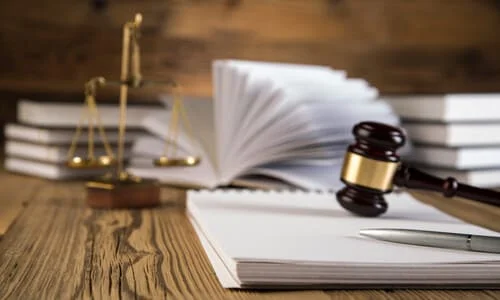Call 24/7 801-810-9999
Book a Consultation
Find out why so many clients appreciate the amount of work we put into their case.
"*" indicates required fields

Under Utah law, the decedent’s heirs or the estate’s personal representative are eligible to begin a wrongful death lawsuit. Utah defines heirs as:
Now that we’ve discussed who can sue for wrongful death, the second thing to consider is whether you have grounds for a lawsuit. A wrongful death case must meet the requirements of a personal injury claim:
In Utah, wrongful death claims must be filed within two years of the death or one year if you are suing a governmental entity. (Suing the government can be challenging in general, and your lawyer will advise you on whether this is an option in your case.)
However, you should remember that your attorney will need time to prepare if they take your case, so it’s better to seek legal advice as soon as possible.
First, you will need to speak with an attorney to determine if there is evidence of a wrongful death and who the liable parties might be. If we determine that you have grounds for a lawsuit, we’ll go over the process and the next steps you can take.
We will also answer any questions you have and discuss your options.
If you decide to proceed with a lawsuit, we’ll compile as much evidence as possible to prove your case. When we’ve built a strong case, we’ll file the necessary paperwork in court.
Later, in a process called discovery, we will exchange evidence with the defendant and their attorney, which gives us more evidence to examine.
There are a number of other steps we’ll take as we get closer to a potential trial, but you should be aware that most lawsuits are ultimately settled out of court. We’ll negotiate with the defendant or – in most cases – their insurance company in an effort to achieve an equitable deal without a lengthy trial.
This is not uncommon in wrongful death cases. Often, the client tells us that they’ve spoken to the police or maybe the district attorney, who were unable to help them.
The reason is usually that there simply isn’t enough evidence to make an arrest or to pursue a criminal case after an arrest is made. The burden of proof in a criminal case is “guilty beyond a reasonable doubt,” and there are some situations where it’s just not possible to meet that burden with the available evidence.
We understand how frustrating it is to hear that the person responsible for your loved one’s death won’t face any repercussions in criminal court. However, it may still be possible to pursue a civil case for wrongful death in these situations.
The burden of proof in a civil suit is a “preponderance of evidence,” which means the jury would be asked to decide if the defendant is guilty “more likely than not.” Again, most wrongful death cases will not go to trial, but our ability to win in a trial will impact negotiations.
If the defendant or their insurance carrier believes we are likely to win in court, they will be more invested in settling the case and more willing to agree on a fair amount of damages.
If the defendant has already been convicted of a crime related to the death, it is also possible to sue them in civil court.
While seeing the person responsible face legal consequences may provide a sense of justice, it won’t help you with the financial strain that often accompanies a wrongful death. Many families struggle after losing a loved one – they may have depended on the decedent’s income, or they might be inundated with final medical bills, funeral expenses, and other costs.
A wrongful death suit can never make up for your loved one’s death, but it can provide you with the financial security to pay for final expenses, support your children, pay your living expenses, and take care of other needs.
The most important consideration is whether the circumstances of the death meet the criteria for negligence listed above. In a few cases, we may be able to prove the actions were intentional rather than negligent, but it’s often easier to prove negligence.
If your loved one’s death doesn’t match one of these categories, that doesn’t necessarily mean it isn’t a wrongful death. We encourage you to speak with a lawyer to learn more about your case.
Here are some common categories of wrongful death claims:
In 2022, 320 people died in traffic-related incidents in Utah, including accidents involving cars, trucks, buses, pedestrians, bicyclists, and motorcyclists. Unfortunately, this is one of the more common situations we see in wrongful death cases.
If we can present evidence to show another driver was at fault in the accident, we may be able to recover damages. Aside from traffic accidents, we also see cases involving boats, ATVs or other low-speed vehicles, golf carts, plane crashes, and other transportation accidents.
If a death happens on someone else’s property – whether a private residence or a business – we will investigate what happened. Sometimes, the death was an unavoidable accident, but in other cases, the property owner’s negligence may have led to a hazardous condition that contributed to the death.
Many of these cases actually fall under premises liability as well, but some don’t. There are several reasons why you might not pursue a claim against the person responsible for the criminal behavior:
In some of these cases, the decedent’s loved ones are in a difficult position. They may be struggling financially, possibly in debt due to their family member’s final expenses and medical bills.
When suing the person responsible for the death isn’t a viable option, we will consider other ways to help the family. If the death occurred on another party’s property, we’ll investigate whether negligent security or other issues contributed to the death.
For instance, if the victim was staying in a hotel and was attacked by an intruder, we might look at how the intruder got into the room. If the hotel failed to provide a reasonably secure room with appropriate locks and other security measures, they may have been negligent.
In such a situation, we might seek compensation from the hotel.
Please contact Valley Law Accident and Injury Lawyers for a free, confidential consultation. We’ll review the details of your case, answer your questions, and clarify your options.
There is no charge for the initial consultation, and if we take your case, you won’t owe us anything until we win or settle it.
Valley Law was established by attorney Brigham Richards, who is dedicated to helping injured people and their families recover the compensation needed to move forward. He believes responsibility is a cornerstone of every successful law practice and is always available to answer questions and assist clients.
He is also fluent in English and Spanish. To work with him today, call Valley Law Accident and Injury Lawyers at 801-810-9999.
Get in touch


2021 and 2022 Gold Winner for Top Law Firm by Salt City Best
Call 24/7 801-810-9999